Hamas wants an independent Palestinian state. It has been violently pushing for it in the past three and half decades since it first started as an underground militant group – it has launched several rockets at Israel, taken hostages, and killed people. Its most daring attack came on Saturday. So far, it has claimed 1,200 lives, including 222 soldiers. Israel is retaliating to the Hamas assault with relentless airstrikes on Gaza Strip. The death toll in the enclave has climbed to 1,354 and in a siege that could only add to the woes of 2.3 million Palestinians, they will have no electricity, water or fuel until hostages are freed. Death and destruction are everywhere and the people of Gaza have nowhere to flee. Also read: The Business of Terror: Who funds Hamas, how does it get weapons? Hamas knew when its assault would have a deadly fallout. And the already unprecedented response from Israel threatens to bring an end to its 16-year rule over the Gaza Strip. Hamas officials say they are prepared for any scenario, including a drawn-out war, and that allies like Iran and Lebanon’s Hezbollah will join the battle if Israel goes too far. But will the Palestinian militant group survive this conflict? How will it end? “I don’t think anyone really knows what the endgame is at the moment,” Tahani Mustafa, a Palestinian analyst at the Crisis Group, an international think tank told The Associated Press (AP). But given the amount of planning involved in the assault, “it’s difficult to imagine they haven’t tried to strategise every possible scenario.” According to Shaul Shay, an Israeli researcher and retired colonel who served in military intelligence, Hamas “miscalculated” Israel’s response and now faces a far worse conflict than it had anticipated. “I hope and I believe that Israel will not stop until Hamas has been defeated in the Gaza Strip, and I don’t think that this was their expectation before the operation,” Shay said of Hamas.
How Hamas rose to power in Gaza From its establishment in the late 1980s, on the eve of the
first Palestinian intifada, or uprising, Hamas has been committed to armed struggle and the destruction of Israel. At the height of the peace process in the 1990s, it launched scores of suicide bombings and other attacks that killed hundreds of Israeli civilians. The violence only intensified with the breakdown in peace talks and the far deadlier second Palestinian uprising in 2000. Hamas attacks were met with massive Israeli military incursions into the occupied West Bank and Gaza that exacted a far heavier death toll on Palestinians. But as the violence wound down in 2005, Israel unilaterally withdrew its soldiers and some 8,000 Jewish settlers from Gaza, while maintaining tight control over access to the enclave by land, air and sea. [caption id=“attachment_13240642” align=“alignnone” width=“640”] Palestinian militants from Hamas ride on a truck with their weapons in 2007. File photo/AP[/caption] Hamas claimed the withdrawal as vindication for its approach, and the following year it won a landslide victory in Palestinian elections. In 2007, after bitter infighting, it violently seized Gaza from the internationally recognised Palestinian Authority. Over the next 16 years, through four wars and countless smaller battles with Israel that rained devastation upon Gaza, Hamas only grew more powerful. Each time it had more rockets that traveled farther. Each time its top leaders survived, securing a cease-fire and the gradual easing of a blockade imposed by Israel and Egypt. In the meantime, it built a government — including a police force, ministries and border terminals with metal detectors and passport control. [caption id=“attachment_13240742” align=“alignnone” width=“640”]
 In the Israel-Hamas conflict, Palestinian president Mahmoud Abbas has been sidelined. File photo/Reuters[/caption] And what of the thousands of Palestinians killed, the flattened apartment blocks, the crumbling infrastructure, the suffocating travel restrictions, the countless dreams deferred in Gaza, a 40-kilometre (25-mile) coastal strip sandwiched between Israel and Egypt? Hamas blamed Israel, as did many Palestinians. The Hamas government has seen only sporadic protests over the years and has quickly and violently suppressed them. Mahmoud Abbas, the powerless president If Hamas’ armed struggle against Israel looks like a failure — or much worse — consider the alternative. The Palestinian leadership in the West Bank recognised Israel and renounced the armed struggle over three decades ago, hoping it would lead to a state in the West Bank, Gaza and East Jerusalem, territories seized by Israel in the 1967 Mideast war. But the talks repeatedly broke down, partly because of Hamas’ violence but also because of Israel’s relentless expansion of settlements, now home to more than a half million Israelis. There have been no serious peace talks in well over a decade, and the Palestinian Authority has become little more than an administrative body in the 40 per cent of the occupied West Bank where it is allowed to operate. Palestinian President Mahmoud Abbas, an 87-year-old moderate, has been powerless to stop settlement expansion, settler violence, home demolitions or the unravelling of longstanding arrangements around a sensitive Jerusalem holy site. He has been sidelined during every Gaza war — including this one — and the Palestinian Authority is widely seen as a corrupt accomplice to the occupation. “Palestinians have tried everything from elections to boycotts to the (International Criminal Court) to engaging in a supposed peace process,” said Mustafa, of the Crisis Group. “You’ve had one of the most conciliatory leaderships in the entire history of the Palestinian national movement, and that still hasn’t been enough.”
In the Israel-Hamas conflict, Palestinian president Mahmoud Abbas has been sidelined. File photo/Reuters[/caption] And what of the thousands of Palestinians killed, the flattened apartment blocks, the crumbling infrastructure, the suffocating travel restrictions, the countless dreams deferred in Gaza, a 40-kilometre (25-mile) coastal strip sandwiched between Israel and Egypt? Hamas blamed Israel, as did many Palestinians. The Hamas government has seen only sporadic protests over the years and has quickly and violently suppressed them. Mahmoud Abbas, the powerless president If Hamas’ armed struggle against Israel looks like a failure — or much worse — consider the alternative. The Palestinian leadership in the West Bank recognised Israel and renounced the armed struggle over three decades ago, hoping it would lead to a state in the West Bank, Gaza and East Jerusalem, territories seized by Israel in the 1967 Mideast war. But the talks repeatedly broke down, partly because of Hamas’ violence but also because of Israel’s relentless expansion of settlements, now home to more than a half million Israelis. There have been no serious peace talks in well over a decade, and the Palestinian Authority has become little more than an administrative body in the 40 per cent of the occupied West Bank where it is allowed to operate. Palestinian President Mahmoud Abbas, an 87-year-old moderate, has been powerless to stop settlement expansion, settler violence, home demolitions or the unravelling of longstanding arrangements around a sensitive Jerusalem holy site. He has been sidelined during every Gaza war — including this one — and the Palestinian Authority is widely seen as a corrupt accomplice to the occupation. “Palestinians have tried everything from elections to boycotts to the (International Criminal Court) to engaging in a supposed peace process,” said Mustafa, of the Crisis Group. “You’ve had one of the most conciliatory leaderships in the entire history of the Palestinian national movement, and that still hasn’t been enough.”
Israel-Hamas War: Related coverage _Death Everywhere: Life inside Gaza amid airstrikes and no power_ _How cheap drones helped Hamas ambush Israel’s sophisticated weaponry_ _Did Iran help Hamas plan the deadly attack on Israel?_ _How Hamas uses tunnels in Gaza to target Israel_ _Who can broker peace between Israel, Hamas? Can India help?_ _How a drawn-out Israel-Hamas war could hurt the Indian economy_
Hamas in unchartered territory Still, the scale of last weekend’s attack takes Hamas’ approach into uncharted territory. “It is unclear what Hamas’ endgame is beyond either fighting to the death or liberating Palestine,” said Hugh Lovatt, a West Asia expert at the European Council on Foreign Relations. The latest attack marks a “complete strategic rupture,” he said. “Despite conducting attacks against civilians in the past and fighting previous wars against Israel, (Hamas) did also simultaneously engage in political tracks,” including negotiations with Abbas’ Fatah movement and even tacit coordination with Israel, Lovatt said. “Now it appears to have fully embraced open-ended violence as its long-term strategic choice.” [caption id=“attachment_13240682” align=“alignnone” width=“640”] A man walks down a destroyed street in the Salahaddin in Rafah, southern Gaza Strip following Israeli strikes on Hamas targets in 2009. File photo/AP[/caption] No win for Israel? Israel appears increasingly likely to launch a ground offensive in Gaza. It could reoccupy the territory and try to uproot Hamas, in what would surely be a long and bloody counterinsurgency. But even that might just drive the group — which is also present in Lebanon and the West Bank — back underground. And Hamas has a horrifying trump card that could give Israel pause. Hamas and the more radical Islamic Jihad militant group are holding some 150 men, women and children who were captured and dragged into Gaza. Hamas’ armed wing claims some have already been killed in Israeli strikes and has threatened to kill captives if Israel attacks Palestinian civilians without warning. Hamas may succeed — as it has in the past — at trading them for thousands of Palestinian prisoners held by Israel in a lopsided deal that Palestinians would see as a triumph and Israelis as agony. [caption id=“attachment_13240702” align=“alignnone” width=“640”]
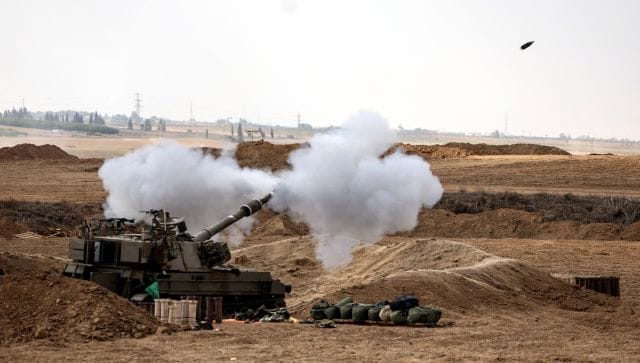 An Israeli tank fires near Israel’s border with the Gaza Strip, in southern Israel, on Thursday. Reuters[/caption] Israel has faced virtually no calls for restraint in the wake of the Hamas attack, but that could change if the war drags on. In the end, the two sides could find themselves returning to the status quo: An internationally mediated truce, with Hamas ruling over a devastated and aid-dependent Gaza, and Israel redoubling security along its frontier. That too, for Hamas at least, would look like a victory. With inputs from AP
An Israeli tank fires near Israel’s border with the Gaza Strip, in southern Israel, on Thursday. Reuters[/caption] Israel has faced virtually no calls for restraint in the wake of the Hamas attack, but that could change if the war drags on. In the end, the two sides could find themselves returning to the status quo: An internationally mediated truce, with Hamas ruling over a devastated and aid-dependent Gaza, and Israel redoubling security along its frontier. That too, for Hamas at least, would look like a victory. With inputs from AP


)
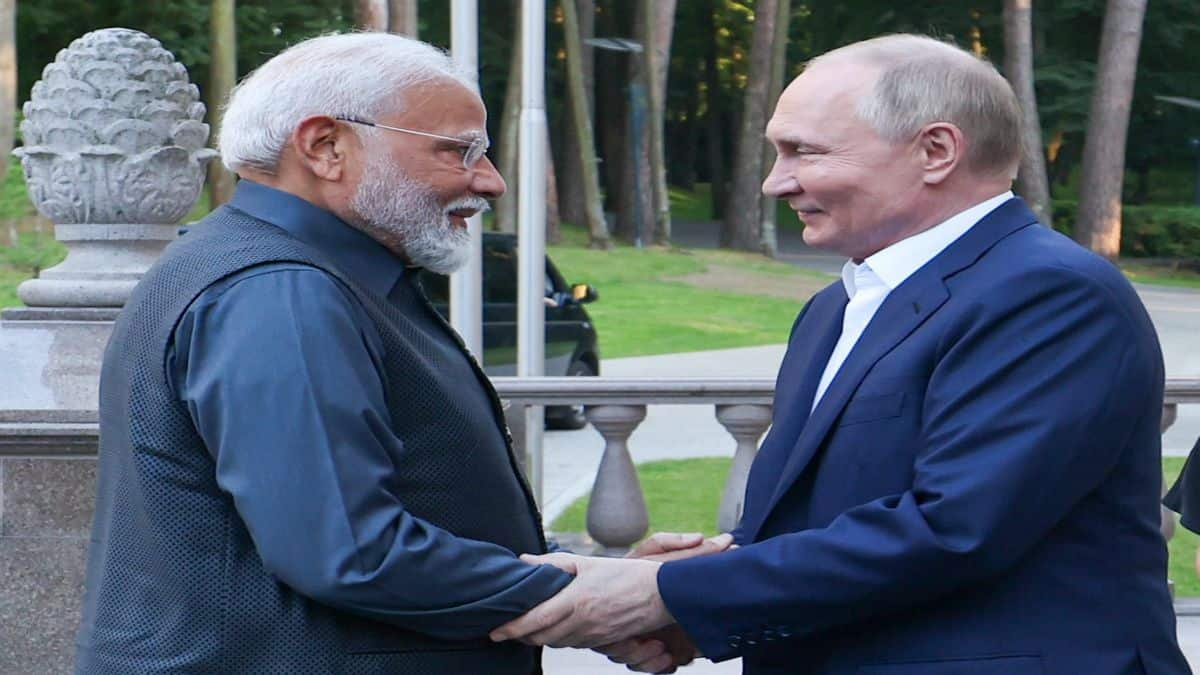
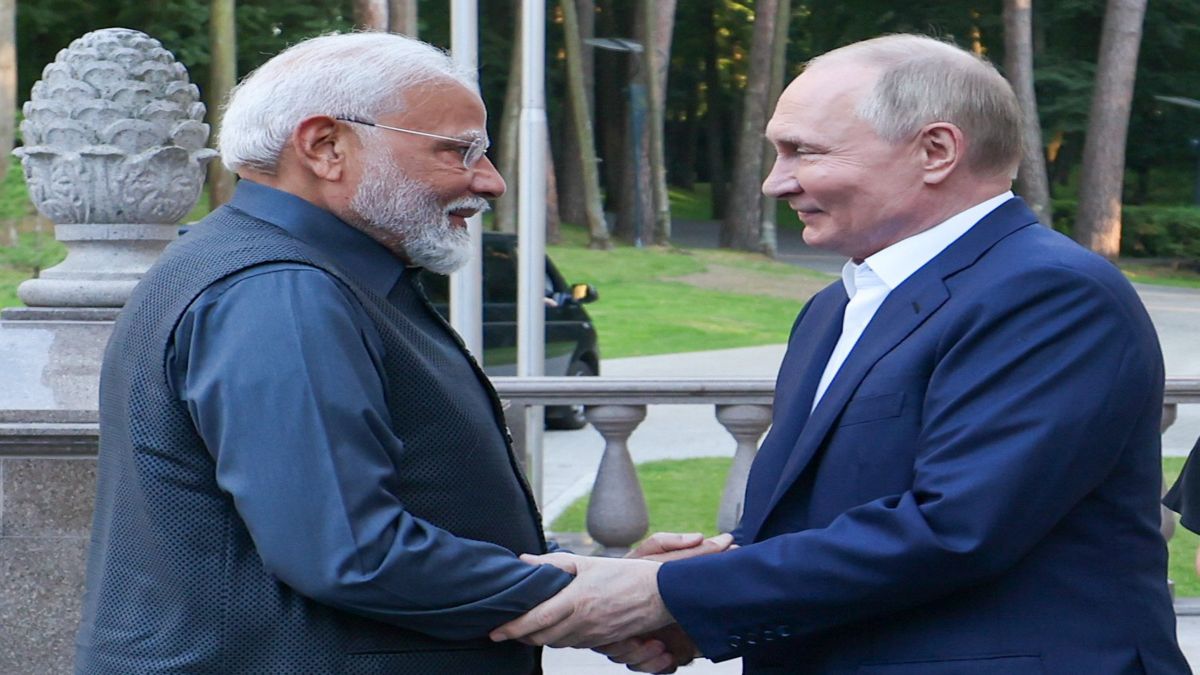)
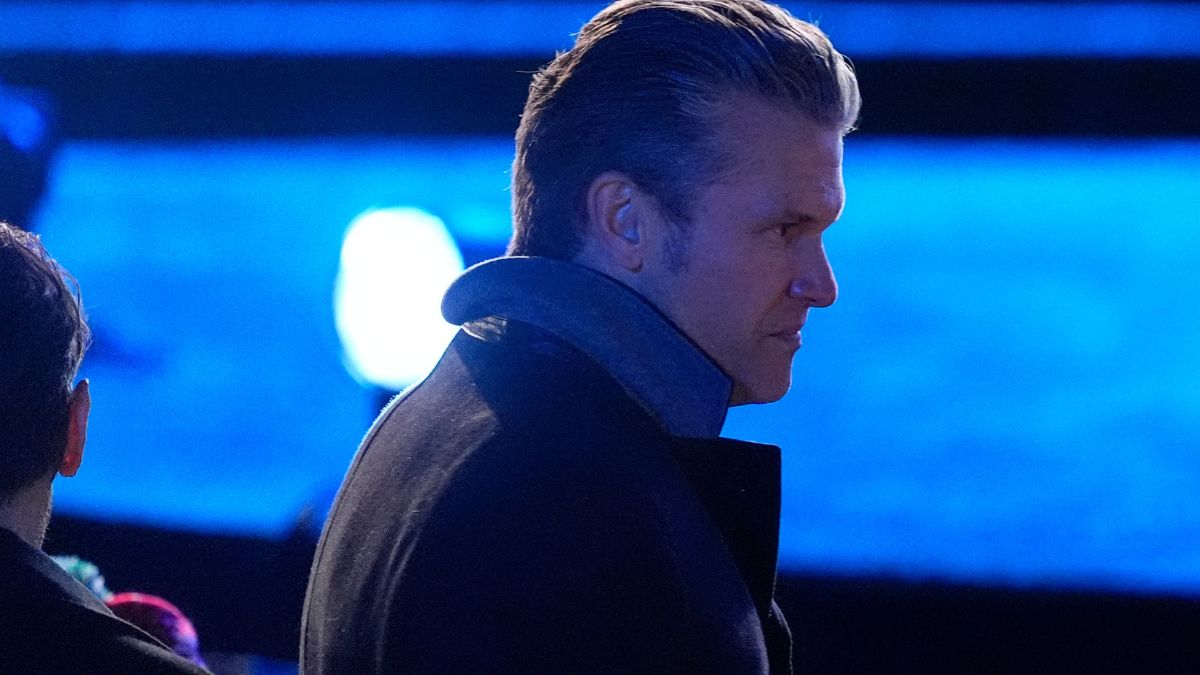)
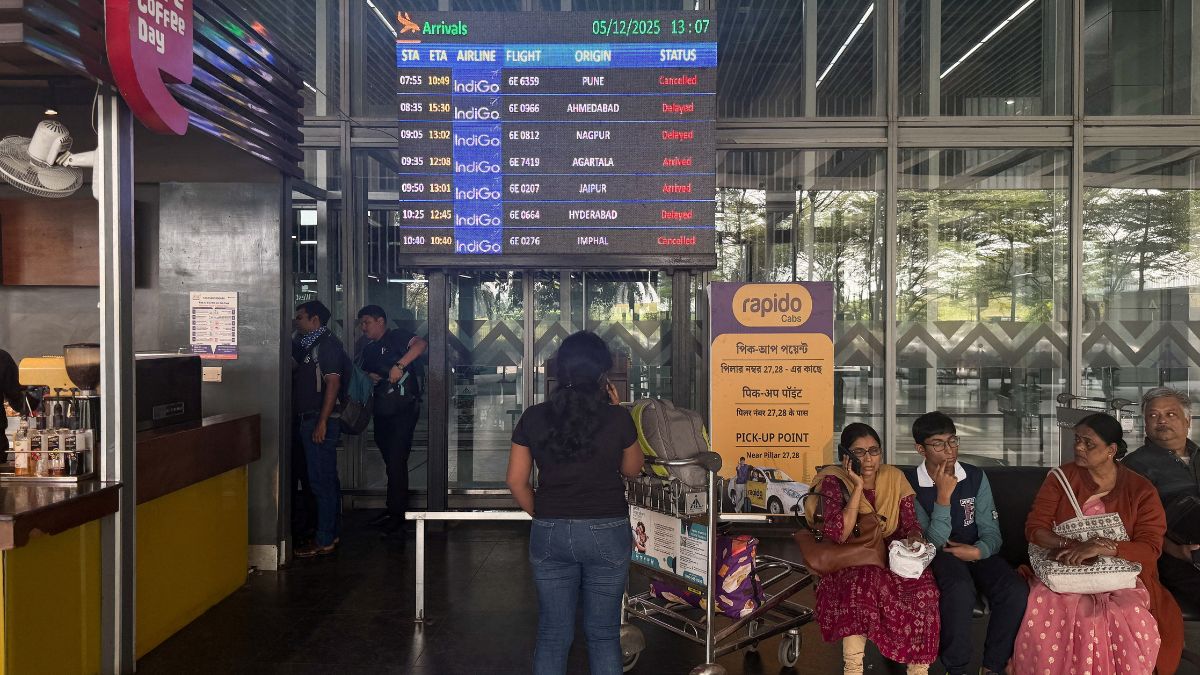)
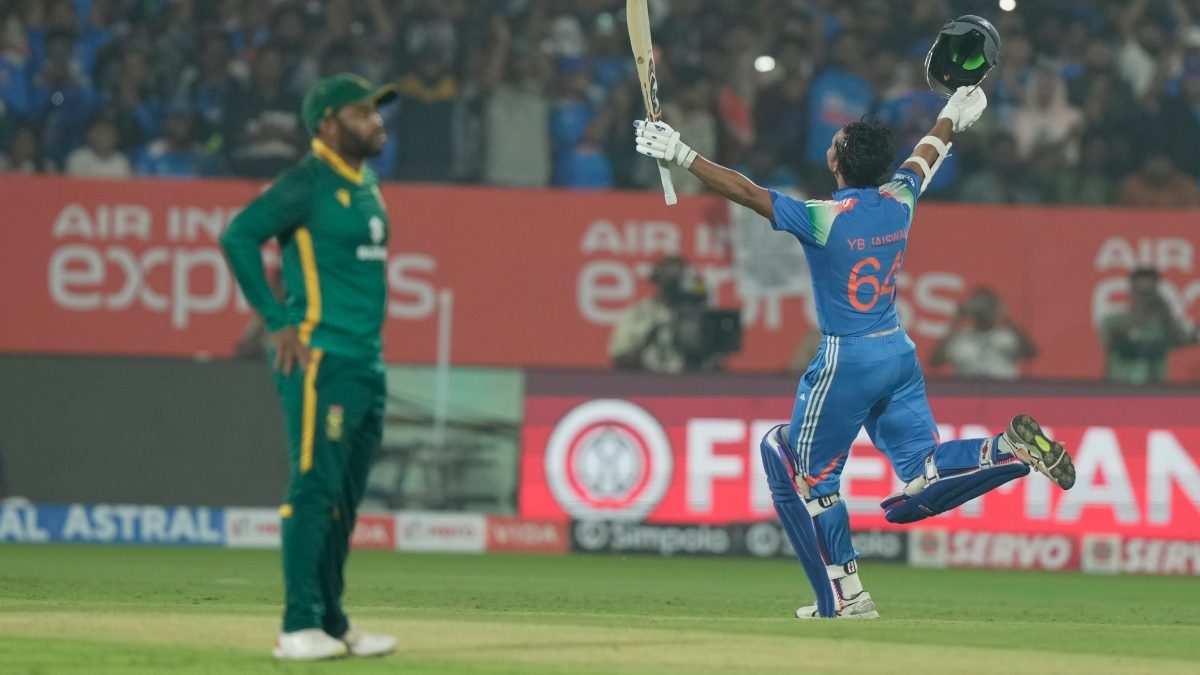)
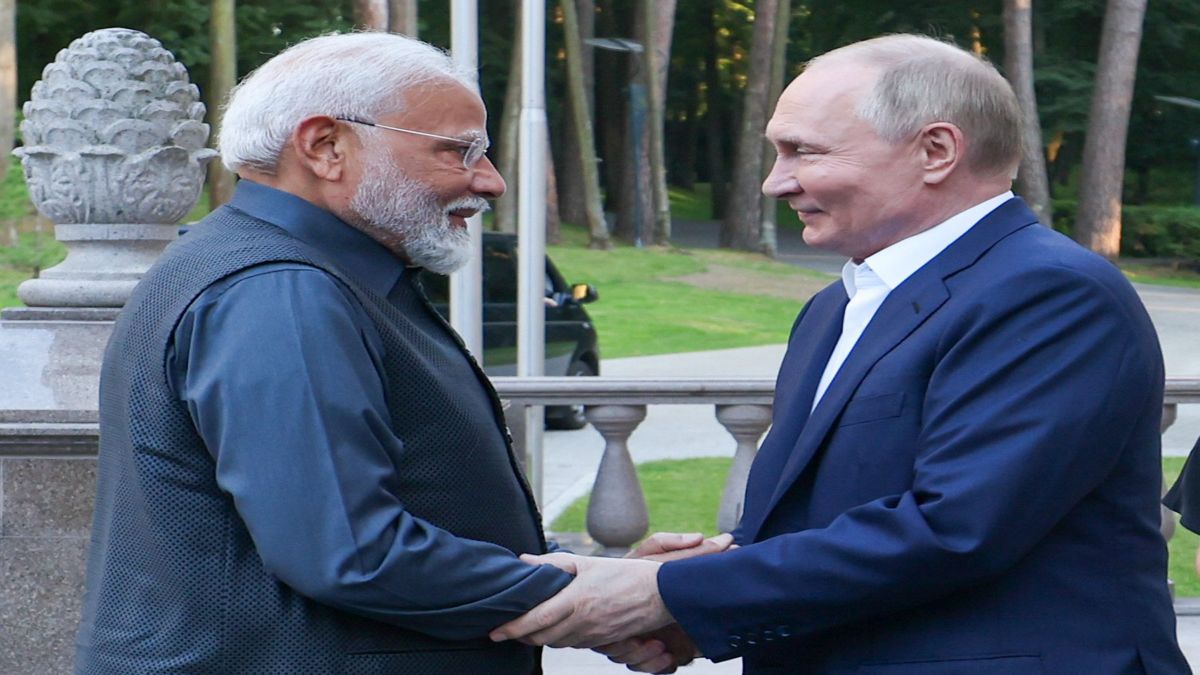)
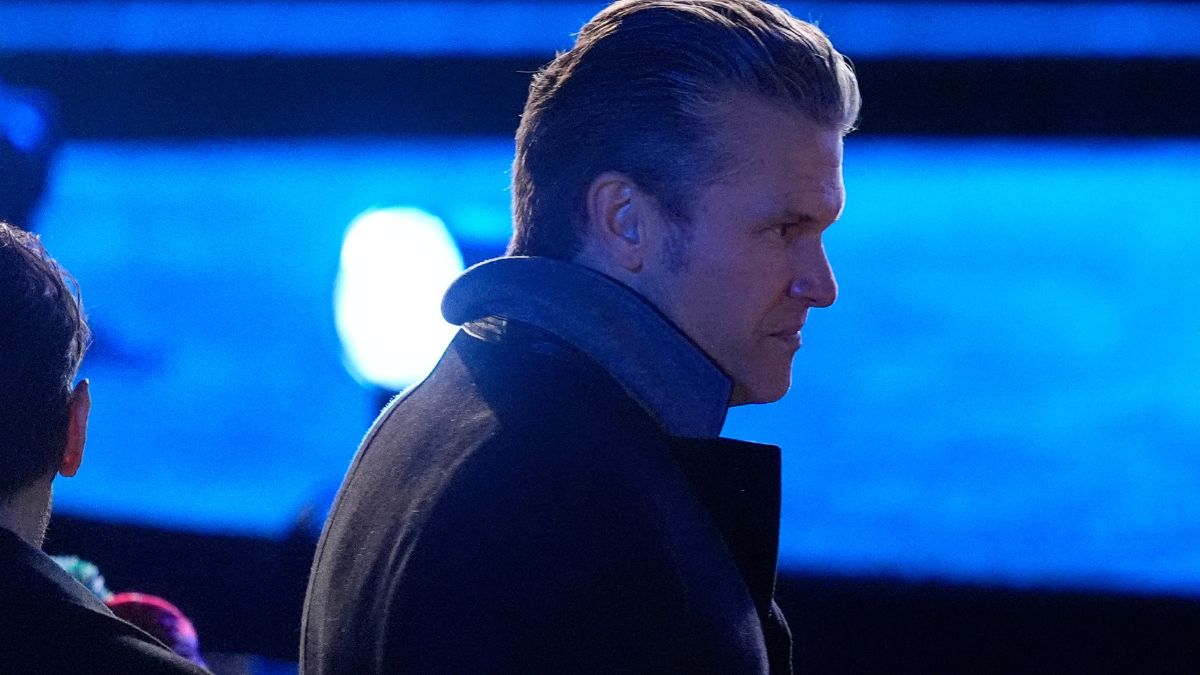)
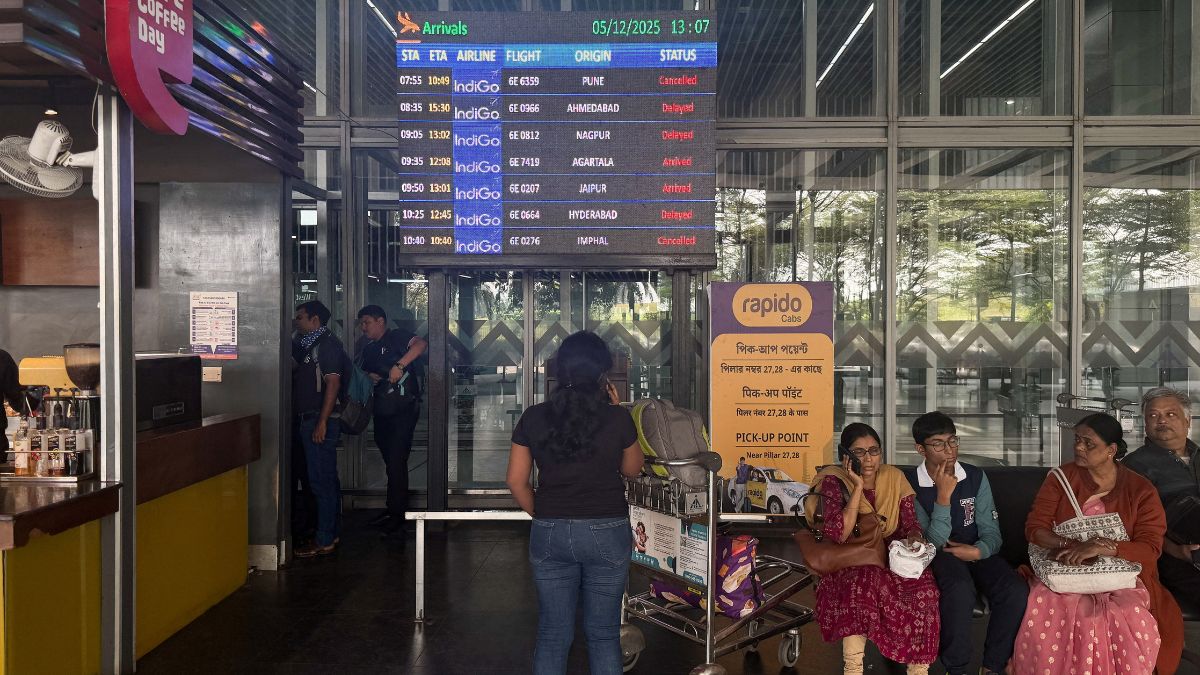)
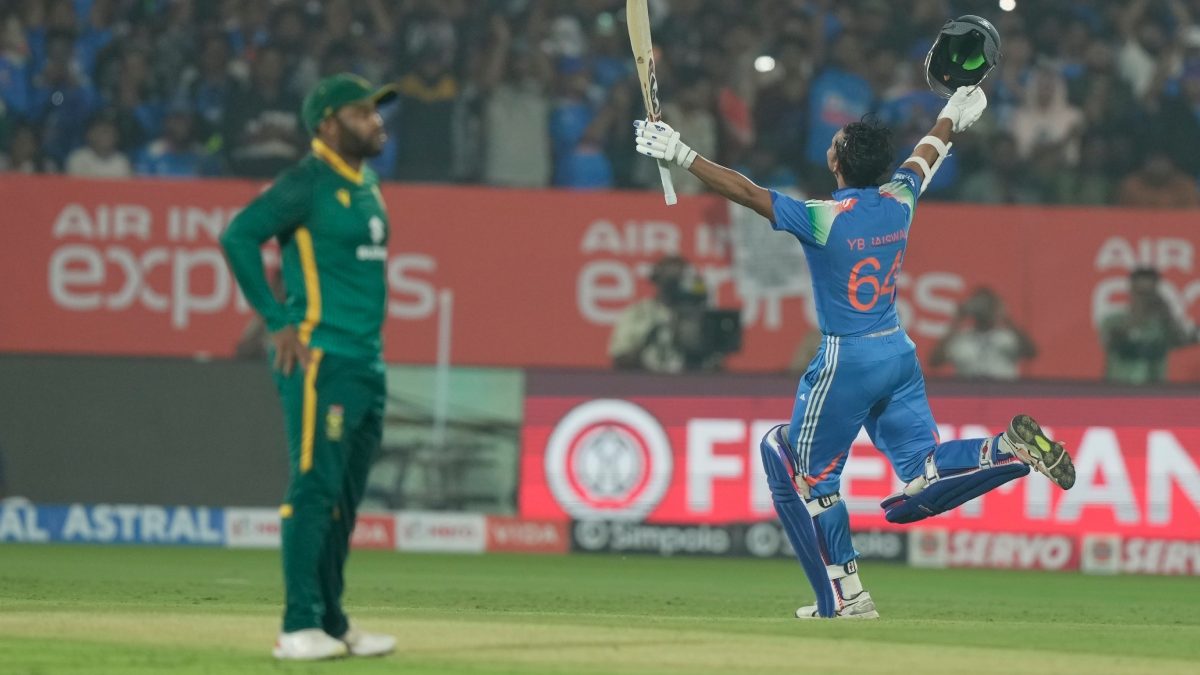)



